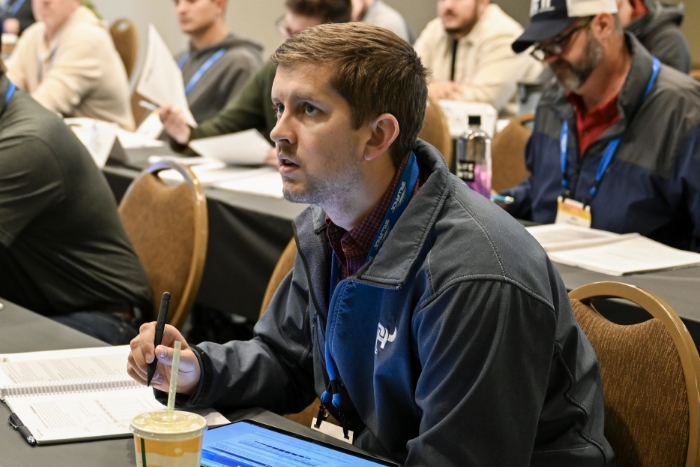I have had countless discussions over the years about the value of certification in our industry. Perhaps for many, their actual return on investment is different from their expectations.
I am a believer in lifelong learning and testing or certification to verify what has been learned. I have participated in many landscape industry certification programs and began Irrigation Association certification in the mid-1990s. I approached the certified irrigation contractor program primarily to learn, but also to use the certification as evidence of that commitment. I was contracting then and there were very few contractors in my area that had any irrigation industry certification. I still believe it helped us show our commitment to professionalism and pursuing best industry practices. I always discussed our certifications and why we pursued them when presenting proposals. Most hadn’t heard about those certifications and many probably didn’t even care, but it did establish something else that was different about us and our brand. To me, I saw a return on investment occurring there.
I believe there is a tremendous value in certification and the learning associated with it.
When having discussions about the value of certification, the statement, “Clients don’t know about certification, all they’re looking for is the best price” will inevitably be presented. I would agree that there aren’t many people in the general public that are familiar with IA certification and a lot only have a limited amount of money to spend on an irrigation system and may choose to take the lowest price.
However, there are also a lot of people that recognize the value of certification. I would be willing to bet many of us know people that have letters after their name and do not know what they represent. There is also a sizeable market that is looking for the best value with the money they spend in addition to a reasonable price. Pursuing certification is not easy, takes commitment (especially if not required) and will be ignored by many. For those who do make that investment and commit to establishing value with their clients, the return on investment becomes real.
The other side of certification is the necessary learning in order to pass certification tests. I have seen a very encouraging trend the last few years and I suspect I know some of the forces driving it. There are more organizations in our landscape irrigation industry that provide training for their employees. Professional training has become more the norm in the workplace and with the challenges we are facing to source labor, the human resource benefits of ongoing development of staff is a piece of retaining staff, especially with newer workers who might have different expectations about the industry than others. We have seen many companies use programs such as the certified irrigation technician program for the purpose of establishing baseline knowledge to be able to grow their teams, understanding that they are all talking the same language and have the same fundamental knowledge. That makes them almost like standardized assessment exams in school, which ensure specific learning has occurred to advance to the next grade.
Another common complaint about certification and licensing is the required continuing education, which can require a significant investment in time and money. Many certification programs offer a wide range of ways to earn credits. Today, there are many opportunities for ongoing learning from manufacturers, distributors, trade associations, training organizations, social media and others that support certification. This requirement can be considered beneficial as these requirements help us to grow, continue learning and help our industry overall.
I believe there is a tremendous value in certification and the learning associated with it. I understand that the financial benefits are not always very clear, but the more we dig into it and look at all the potential return on investment, it becomes a no-brainer.
Christopher Pine, CLWM, CID, CIC, CLIA, CIT, MCLP, is a principal of IrriTech Training and the president of BluGreen Solutions in Pocasset, Massachusetts. He can be reached via email.





